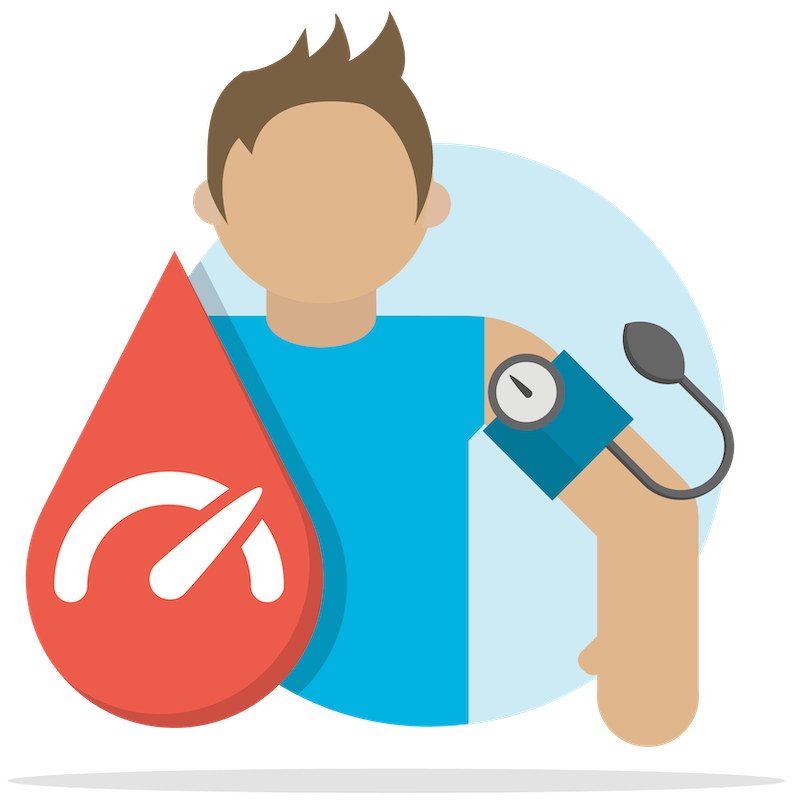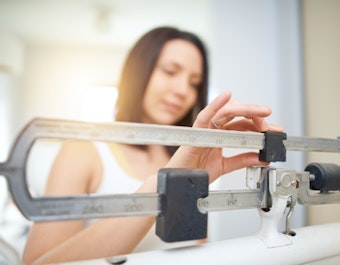QUICK SUMMARY
Who needs it: All adults need regular blood pressure checks.
The numbers: Under 120/80 is normal for most people.
Good to know: Blood pressure can change day to day, even minute to minute.
What is a blood pressure check?
Blood pressure is described in two numbers that look like this: 110/70. The first, or top, number is the pressure in your arteries when your heart beats and pumps blood out to the rest of the body. That's called your systolic pressure. The second, or bottom, number, the diastolic pressure, is the pressure when your heart rests and fills with blood again. The top number is larger than the bottom.
Ideally, your upper number should be less than 120 and your bottom number should be lower than 80. Blood pressure readings may start to raise some concern when the upper number is repeatedly above 120 or your lower number is repeatedly above 80. Your doctor may follow up by asking you to check your blood pressure outside of the health care setting.
Why is it important?
High blood pressure stresses your heart and puts you at risk for heart disease, stroke, and damage to delicate blood vessels in organs like the eyes and kidneys. If your numbers are too high, your doctor will probably advise ways to try and bring them down.
There are a few options: For example, exercise is one way to make your heart stronger and help bring your blood pressure down (check with your doctor before starting a new exercise program). What you eat matters, too — studies show that eating more heart-healthy vegetables and limiting salt, saturated fat, and cholesterol can help. If you smoke, quit as soon as possible. Some people may also need medications to help bring their pressure under control.
Who needs it?
According to the U.S Preventive Services Task Force, everyone age 18 and over should have their blood pressure checked at regular intervals. The Task Force also recommends:
- If you're 40 or over or at greater risk for high blood pressure, you should check it each year. Those at increased risk include people who are overweight or obese, African-Americans, and those who have blood pressure readings with an upper number between 130 to 139 and a lower number between 85 to 89.
- If you're age 18 to 39 and your blood pressure is under 130/85, you may be able to go three to five years before checking it again (as long as you don't have risk factors). Ask your doctor how often you should have your blood pressure checked.
If you have hypertension or high blood pressure, discuss with your doctor how often you should get your blood pressure checked.
What to expect
A blood pressure cuff around your arm measures the force of blood as it travels through a main artery. Once on, the cuff will inflate and squeeze your arm for a few seconds. You might feel a little discomfort, but most people don't.
Good to know
Blood pressure can change a bit from day to day, even minute to minute. In fact, many people feel stressed at the doctor's office, so their blood pressure reading may be higher than it would be the rest of the time. There's even a name for this: white coat syndrome. For that reason, your doctor may want to measure your pressure more than once before coming up with a plan of action. If you do need to control your blood pressure, your doctor may recommend a personal monitor to help you track your progress. Some newer devices can even sync your data to a smartphone app.
Selected references
American Heart Association. What Is High Blood Pressure? Last reviewed October 2016.
U.S. Preventive Services Task Force (USPSTF). High Blood Pressure in Adults: Screening. Last updated October 2015.
STAFF
Rally Health




